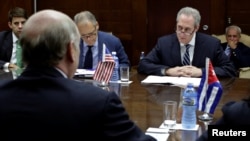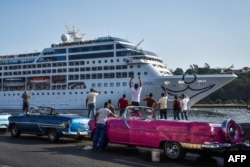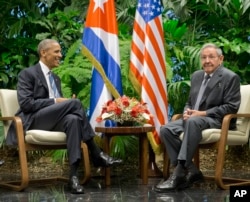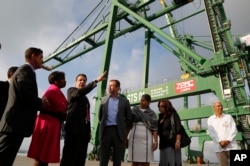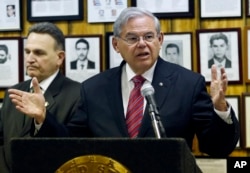The nascent growth in U.S. business ventures in Cuba is now in doubt, with uncertainty whether U.S. President-elect Donald Trump will carry out his campaign vow to undo President Barack Obama's diplomatic thaw with the communist island that ended five decades of hostilities between the two countries.
U.S. cruise ships are docking in Havana, American flights are landing in Cuba and U.S. hotels are booking guests. But the death of Cuban revolutionary Fidel Castro and the ascent of Trump to the U.S. presidency in two months have left open the question of whether the improved economic links will continue with Cuban President Raul Castro.
Even as Obama renewed diplomatic relations with the island nation 140 kilometers off its southeastern shore and made economic overtures, the U.S. maintained its official trade embargo, which most Republicans who control Congress support keeping in place.
Trump on Cuba policy
At one point during his lengthy campaign for the White House, Trump said, “All of the concessions Barack Obama has granted the Castro regime were done through executive order, which means the next president can reverse them, and that I will do unless the Castro regime meets our demands.”
Reince Priebus, Trump's White House chief of staff when he assumes power, echoed that sentiment Sunday, telling Fox News that the president-elect needs to see “movement in the right direction” from the Cuban regime in order to maintain the renewed diplomatic relations.
“Repression, open markets, freedom of religion, political prisoners — these things need to change in order to have open and free relationships,” Priebus said. “There’s going to have to be some movement from Cuba in order to have a relationship with the United States.”
Rapprochement
Cuba and the United States opened embassies in Washington and Havana in 2015, with Obama visiting Cuba in March of this year.
But U.S. trade with Cuba in recent years has been one-sided, with the U.S. exporting about $180 million worth of goods this year and last and importing nothing, according to U.S. government figures.
However, U.S. flights to Cuba are increasing, carrying tourists eager to see a land and people that have been off limits to Americans since Fidel Castro nationalized U.S. corporate holdings in 1961 after overthrowing Fulgencio Batista, a dictator who was a U.S. ally.
New Jersey Senator Robert Menendez, a critic of Obama's normalization of relations with Cuba, said that U.S. economic links to Cuba remain firmly connected to President Raul Castro's family.
"What Raul is doing is preparing for a generational change to his son and son-in-law," Menendez said. "You want to do business in Cuba, you want to be part of the hotel industry, tourism industry, you got to see Raul's son. You want to go ahead and do agriculture business in Cuba, you got to do it with his son-in-law, both high-ranking officials of the Cuban military. So yeah, they're thinking about a generational change, but it's from one set of Castros to another set of Castros, not from a dictatorship towards freedom and democracy and human rights. And we should understand that."




